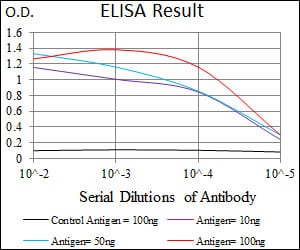SFTPC Primary Antibody
Item Information
Catalog #
Size
Price
Description
This gene encodes the pulmonary-associated surfactant protein C (SPC), an extremely hydrophobic surfactant protein essential for lung function and homeostasis after birth. Pulmonary surfactant is a surface-active lipoprotein complex composed of 90% lipids and 10% proteins which include plasma proteins and apolipoproteins SPA, SPB, SPC and SPD. The surfactant is secreted by the alveolar cells of the lung and maintains the stability of pulmonary tissue by reducing the surface tension of fluids that coat the lung. Multiple mutations in this gene have been identified, which cause pulmonary surfactant metabolism dysfunction type 2, also called pulmonary alveolar proteinosis due to surfactant protein C deficiency, and are associated with interstitial lung disease in older infants, children, and adults. Alternatively spliced transcript variants encoding different protein isoforms have been identified.
Product Overview
Entrez GenelD
6440
Aliases
SP-C; PSP-C; SFTP2; SMDP2
Clone#
5E6A9
Host / Isotype
Mouse / IgG1
Species Reactivity
Human
Immunogen
Purified recombinant fragment of human SFTPC (AA: 60-180 ) expressed in E. Coli.
Formulation
Purified antibody in PBS with 0.05% sodium azide
Storage
Store at 4°C short term. Aliquot and store at -20°C long term. Avoid freeze/thaw cycles.
Product Applications
WB (Western Blot)
1/500 - 1/2000
ELISA
1/10000
References
1.Am J Respir Cell Mol Biol. 2011 Sep;45(3):498-509.
2.J Biol Chem. 2009 Nov 27;284(48):33377-83.
2.J Biol Chem. 2009 Nov 27;284(48):33377-83.
Product Image
Western Blot

Figure 1: Western blot analysis using SFTPC mAb against human SFTPC recombinant protein. (Expected MW is 38.4 kDa)
Western Blot

Figure 2: Western blot analysis using SFTPC mAb against HEK293 (1) and SFTPC (AA: 60-180)-hIgGFc transfected HEK293 (2) cell lysate.
Elisa

Black line: Control Antigen (100 ng); Purple line: Antigen(10ng); Blue line: Antigen (50 ng); Red line: Antigen (100 ng);
For Research Use Only. Not for use in diagnostic procedures.

